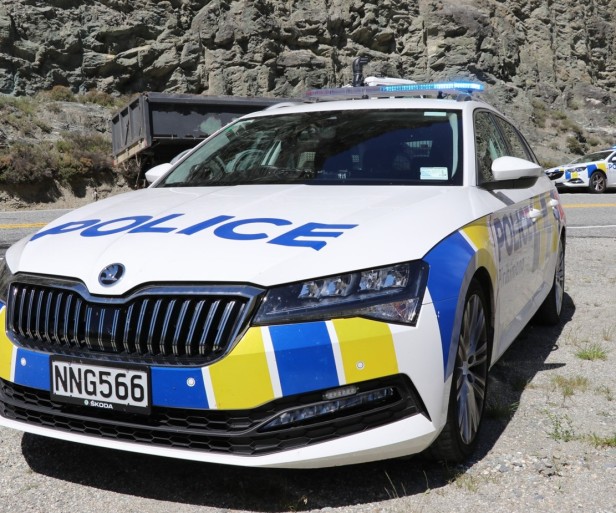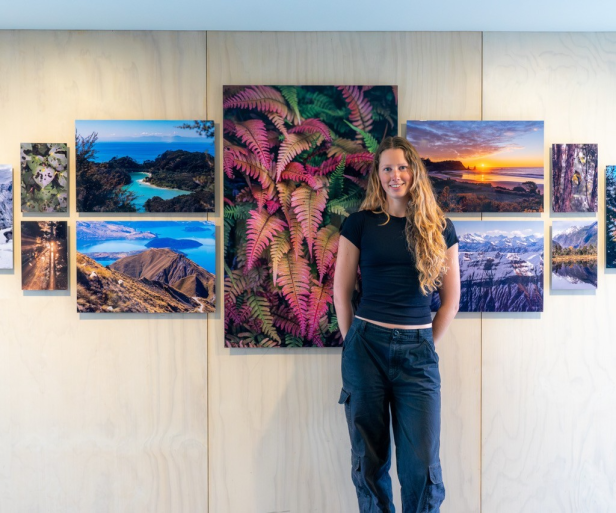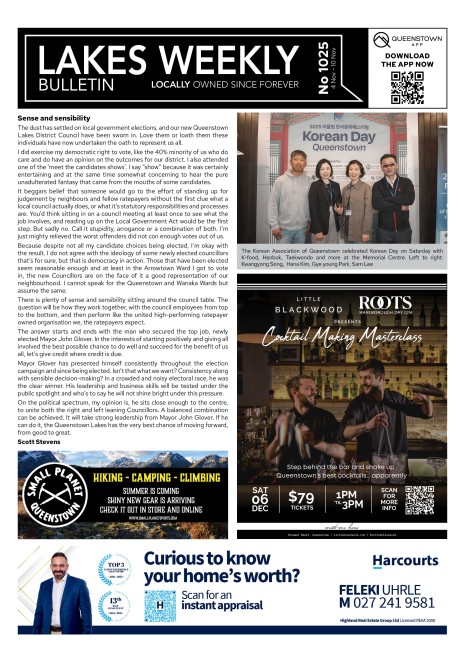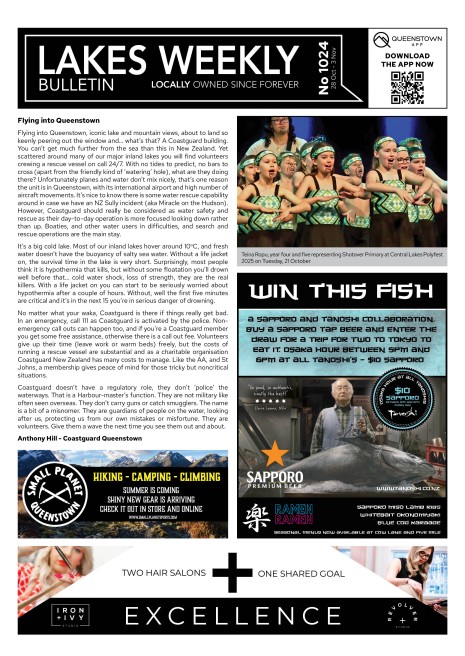Problems of over-tourism - and some solutions
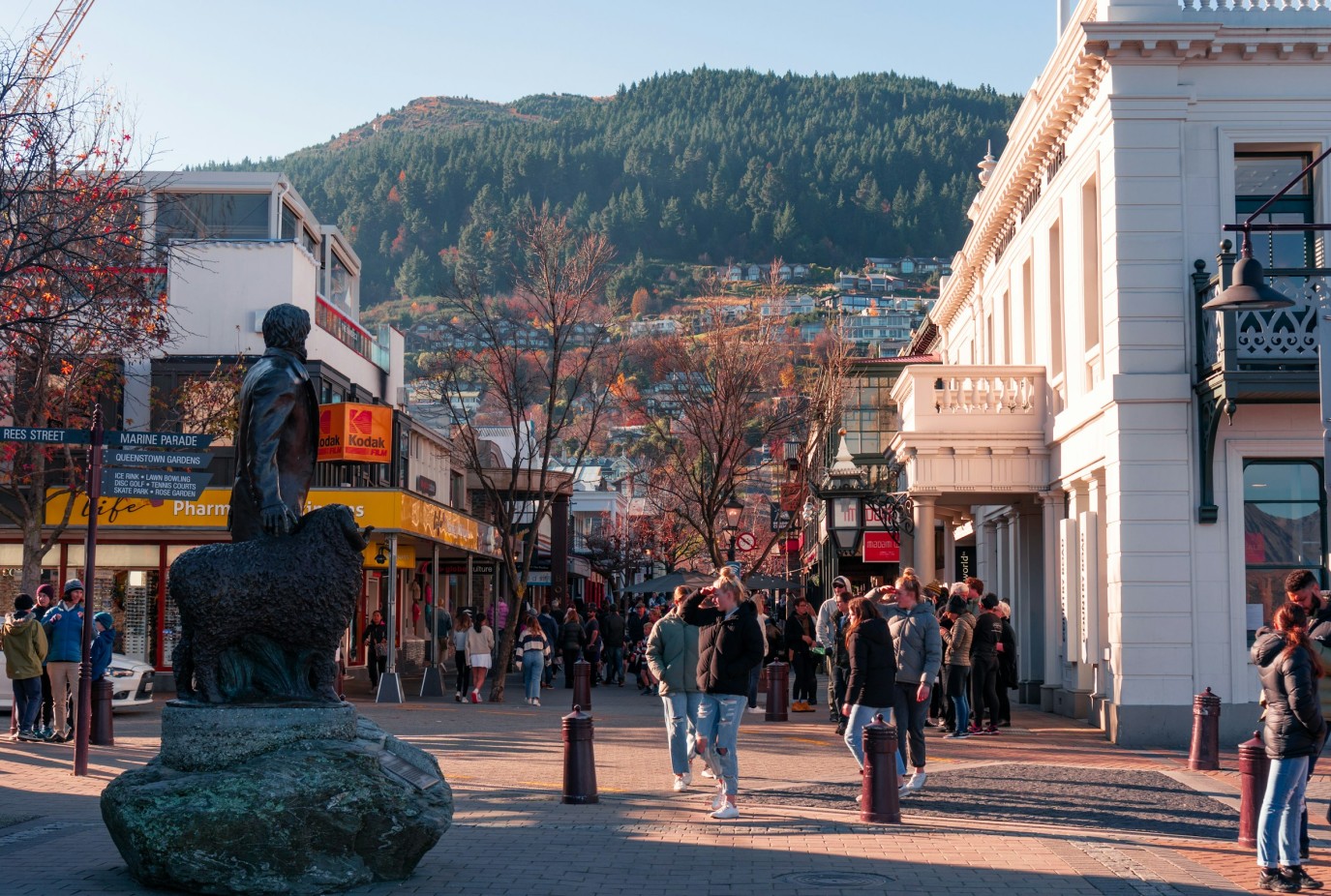
Queenstown Lakes workers say they feel like 'second class citizens' in the expensive region, with housing, activities, shopping, food and drinks beyond their reach.
That's one of the key findings of new research into the social impacts of over-tourism, by community not-for-profit Shaping Our Future, published today.
The report sets out how the working population, who enable the visitor economy, don’t feel valued or recognised for the contribution they make. Inadequate controls on Airbnb-style visitor accommodation and second homes are partially to blame, they say, making housing unaffordable.
Many Queenstown Lakes residents also believe another negative impact of high tourist numbers is a loss of sense of place. They say they are being crowded out of their favourite haunts and meeting places by visitors, while downtown Queenstown no longer caters to locals.
And overloaded infrastructure, services and environment are also a concern, with Queenstown Lakes District Council struggling to fund upgrades.
But it's not all negative. The report finds residents also strongly value the connection with visitors and the diversity of culture they bring, not to mention the opportunities, vibrancy, range of activities that tourism supports.
Shaping our Future executive officer John Glover says: “The often used phrase –‘over-tourism’ – is not solely a function of the number of tourists, but is more a perception or feeling that arises when the negative impacts of tourism are too high.
"We wanted to hear the experiences of those growing up, living and working in a tourist economy.
"We were pleased that work was supported by tourism and hospitality businesses in both Wānaka and Queenstown and the engagement process resulted in some really constructive conversations”.
More than 250 members of the public participated in this engagement via workshops, college visits and an online survey, across a wide range of age groups.
The report will be presented to Destination Southern Lakes, which has created the destination management plan, and is conducting work on 'optimal visitor numbers'.
Shaping our Future board chair, former Queenstown Lakes mayor Vanessa van Uden, says: "Pre and post covid the community sentiment that there were just ‘too many’ tourists was frequently heard.
"Asking the question ‘why do you think that’ helps verbalise the impacts which is the starting point for developing strategies to reduce the impacts.”
Shaping Our Future also details some possible solutions - 'priorities for action to put residents first'. Here are some of them:
Priorities to address 'loss of sense of place'
- Reclaim the downtown for residentd
- Making new places elsewhere in the district for residents to bump into each other and interact
- Managing visitor impacts at our favourite places
- Parking permits and differential tariffs for residents
Priorities to address 'two-tier society'
- Create an environment that fosters small, locally owned/operated businesses
- Locals’ discounts on activities and accommodation
- Locals’ nights or locals’ tables set aside at restaurants
- District Plan rules reviewed to minimise impacts of large scale retail / hospo
- The Queenstown & Wānaka chambers & local restaurant / hospitality associations launch a ‘loving our locals’ campaign
Priorities to address impact
- Identify the level of visitation that infrastructure can currently accommodate. Consider a ‘quota’ to ensure infrastructure is not overwhelmed
- Strategies to smooth the peaks, off-seasonal marketing spend is the focus
- Visitor levies are used to reduce impact of visitors not to solely enable more to be accommodated
- Investigate use of road tolling for rental vehicles on the Frankton Road and downtown areas
- QLDC take positive action to obtain listing data and then act to ensure properties have appropriate permissions to act as short term VA
- Lobby for a requirement for overseas tourists to pay the full costs of any medical, ambulance, search and rescue etc costs
- Investigate the impact of visitors on the ability of local health service providers to readily meet the needs of the resident population
- Tourism sector carbon footprint is quantified, a target is set and emissions are tracked to monitor progress towards the target


